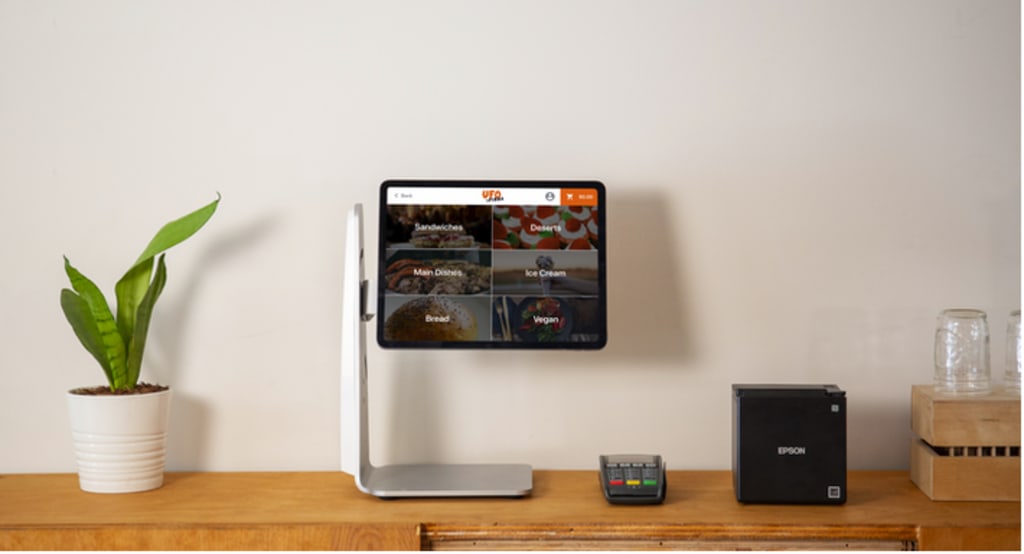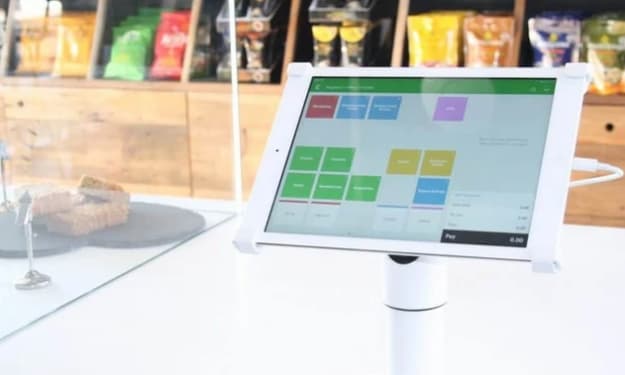How Can a San Diego POS System Benefit Your Business
A Point of Sale System Can Do Wonders for Your Small Business

Operating a business requires a combination of management, marketing, and administrative skills. Making sure you have inventory to compile monthly sales reports are essential to ensure your venture runs smoothly.
An efficient point of sale (POS) system is vital to make sure that your business can go the distance.
As your leading San Diego POS systems vendor, Rigel Payments has created this article to share helpful tips. These include what you should have in a POS system, and to choose the ideal option for your company.
What is The Purpose of A POS?
A point of sale system is known as a POS system. It allows your customers to make payments for purchasing the products, goods, or services you sell. Every time a customer purchases from your business, they’re completing a POS transaction.
In short, your point of sale system serves as the focal point of your company. It’s where everything relating to your inventory, sales, and customer management comes together.
Having a point of sale system in place can provide significant benefits for your business. Surprisingly, over 50% of businesses are still not using one. This could be because implementing new technology can be intimidating and overwhelming for many entrepreneurs.
Understanding what a POS system is, and its capabilities allow you to make informed decisions about purchasing and using it to your best advantage. Our knowledgeable team at Rigel Payments is ready to help!
Software Components of A Successful San Diego POS System
All point-of-sale systems contain software and hardware designed to make running your daily business operations easier. When deciding what you need in a San Diego POS system, flexibility is key.
You should ensure that your POS vendor, such as Rigel Payments, can work with the payment gateway or processor of your choice. This allows you better control costs.
If you’re using applications essential to your business, make sure your point of sale system can integrate with them easily. That way, you can continue using them without worry.
Essential Hardware Components of A POS System
There are physical components needed to get your San Diego POS system up and running for your business.
The most common include:
Monitor or tablet: Having a monitor or tablet in your point of sale system displays essential product information and can allow for other functions. These can include viewing sales reports and employee clock-ins.
Barcode scanner: Scanning barcodes allow you to automate the checkout process. It pulls product information and applies it to each checkout total. Barcode scanners can merge with inventory management software to calculate and adjust stock levels.
Credit card reader: Secure and EMV-compliant credit card readers have been essential since 2015. Businesses using non-compliant POS systems run the risk of facing fraud liabilities and significant losses.
Receipt printer: Paper receipts are important to provide your customers with a quick review of their purchases or returns.
Cash drawer: While most business transactions are becoming digital, cash is still king. You must have a secure place to store your cash for daily transactions, such as a cash drawer.
What to Look for When Buying: Key POS System Features
Many tasks of your daily business operations can be tedious and exhaustive on your resources. With the right point of sale system, you can simplify essential tasks with greater efficiency.
Modern POS systems offer more than flexibility for processing transactions. They can improve your venture’s chances of success by providing you with the tools you need to streamline your business processes.
Key features that many businesses look for when selecting a point of sale system include:
- Sales Reporting
- Inventory Management
- Customer Management
- Employee Management
Sales Reporting
Most POS systems allow you to oversee all your sales. The difference between each lies in how they display numbers, how they access data and the amount of detail you get.
Your San Diego POS system should be able to:
- Generate detailed sales reports with accuracy. These should include product and goods, employee hours, the total cost of items sold, profit percentages, gross margins, net profits, and more.
- Provide quick charts and snapshots of your business’ performance
Inventory Management
Inventory management is one of the most important functions of your POS system. It allows you to keep track of all your products, goods, or services so you know when it’s time to order certain products.
Your San Diego POS system should allow you to:
- Digitally count and scan products
- Manage and organize your stock by creating product variations
- Identify inventory using unique serial numbers
- Monitor inventory across multiple locations
- Order seamlessly through setting such as automatic reorders of best-selling products
- Combine products and orders in one order
Customer Management
Repeat business relies on building strong relationships with your customers. Your POS should have customer management (CRM) systems in place to track and manage all customer-related information.
Your San Diego POS system should allow you to:
- Connect a transaction or sale to a customer
- Store all customer purchase history
- Capture customer data including their name, birthday, age, phone number, and email address.
- Keep in contact with your customers and clients using email marketing
- Implement a built-in customer loyalty program
Employee Reporting and Management
The performance of your employees can make or break your business. Being able to set sales targets, knowing who your top performers are, and who needs more coaching can help increase your sales.
Your San Diego POS system should allow you to:
- Add new and existing employees to your system
- Develop and adjust employee schedules
- Email schedules to your employees
- Monitor employee weekly hours and overtime
- Evaluate who your top-performing employees are
Questions to Ask Rigel Payments When Choosing A POS System
If it’s your first time choosing a point of sale system for your business, start by making a list of features you need. You can reach out to and talk with fellow business owners in your network. Ask which POS systems they’re using and what they like and dislike about each.
Feel free to browse our website and contact Rigel Payments to discover which point-of-sale systems we provide. Make sure that the POS system covers the key factors essential for your business to provide a modern, secure, and easy-to-use, easy-to-maintain setup.
Spead, accuracy, and usability are essential in a point of sale system. It’s important to consider how factors such as easy use, flexibility in pricing, data security, durability, and accuracy can provide your customer service.
Some examples of important questions to ask us at Rigel Payments include:
- Can the San Diego POS system integrate with my existing software?
- What payment methods can the POS system accept?
- How much does the POS software cost?
- Are there hidden fees?
- Do I need to sign a contract?
About the Creator
Rigel Payments
Your one-stop provider to ensure safe, secure, and competitively priced payment acceptance!
Enjoyed the story? Support the Creator.
Subscribe for free to receive all their stories in your feed. You could also pledge your support or give them a one-off tip, letting them know you appreciate their work.






Comments
There are no comments for this story
Be the first to respond and start the conversation.